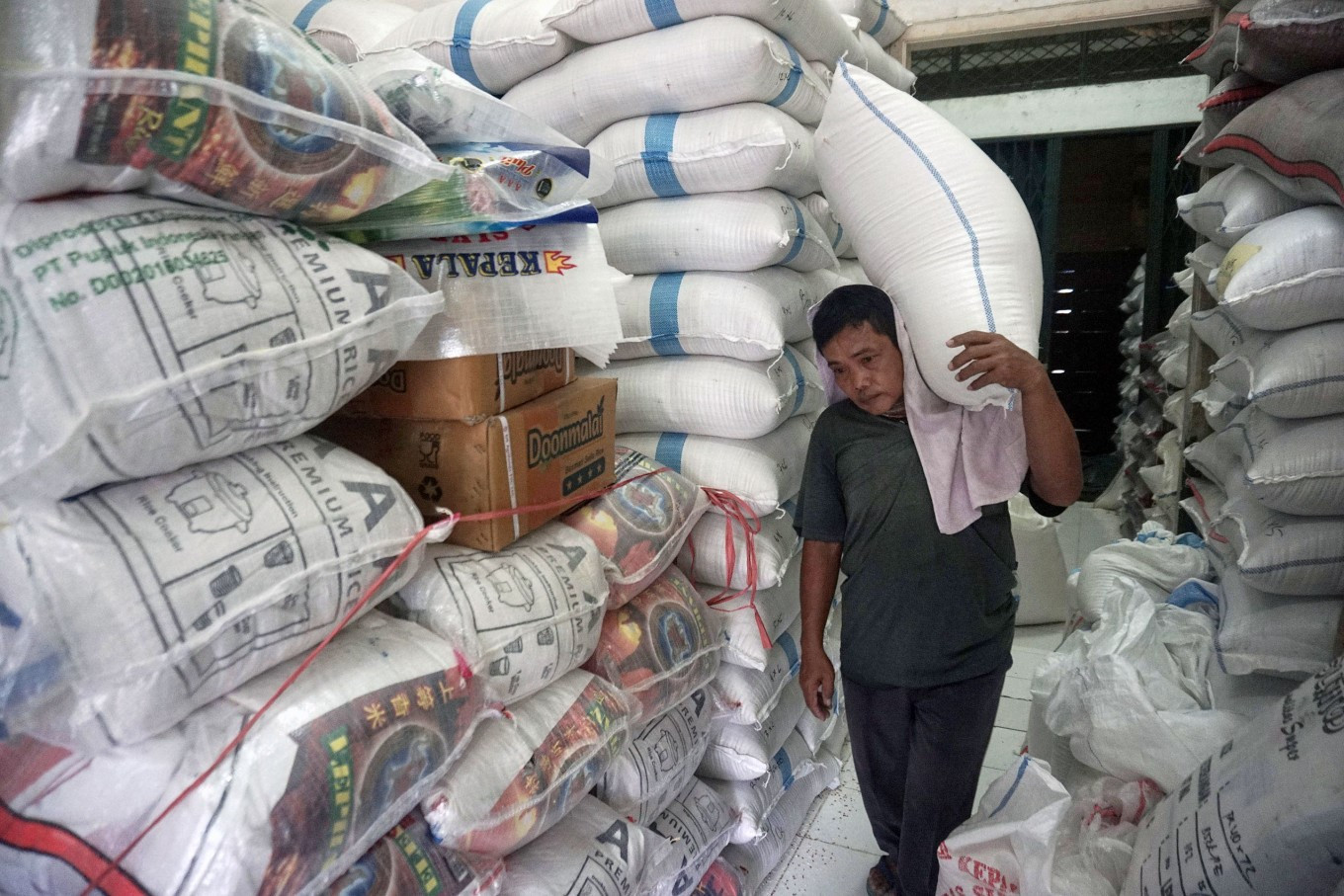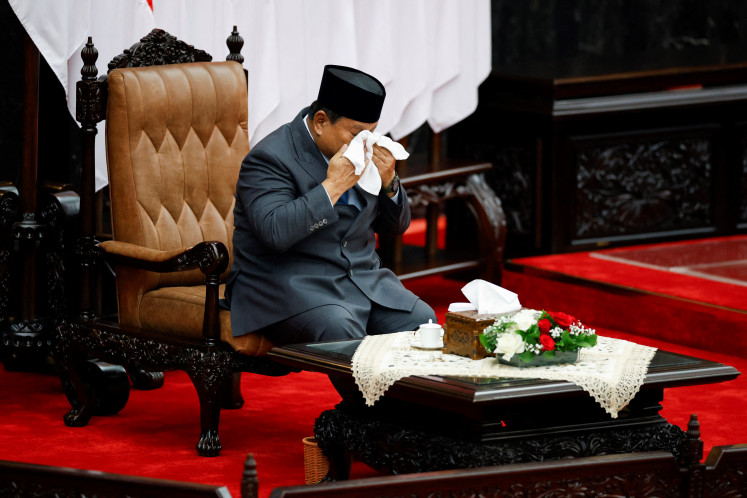Popular Reads
Top Results
Can't find what you're looking for?
View all search resultsPopular Reads
Top Results
Can't find what you're looking for?
View all search resultsReform Bulog, not rice imports
As long as the government’s ceiling price cannot match the farmgate price, Bulog will be unable to effectively replenish its national stock from farmers.
Change text size
Gift Premium Articles
to Anyone
G
iven Indonesia’s abundant production and surpluses of rice in the past few years, there should be no urgency in importing rice this year. The fact that State Logistics Agency (Bulog) lacks stock for price stabilization is primarily a result of the government’s rigid bureaucracy.
Imports can be justified in the event of a deficit in the supply of a particular commodity, as is happening with sugar and garlic.
Against the rulebook, however, the government has once again announced a plan to import rice. This time around, the rice imports will amount to 2 million tonnes, the highest during President Joko “Jokowi” Widodo's 10-year tenure. The previous record came in 2017 with 1.8 million tonnes.
The government said the upcoming imports would be needed to substitute the diminishing government rice reserves (CBP), a special state-owned stock entrusted to Bulog to stabilize the price, which has been dangerously low.
Indeed, rice demand used to go up during Ramadan and ahead of Idul Fitri, but fulfilling CBP with imported rice is both unnecessary and avoidable in the Indonesian case.
Bulog’s low stock stemmed from the soaring farmgate price that exceeded the government purchase price (HPP) reference in the first place. Due to the low government ceiling price, Bulog was unable to absorb as much rice as it could during harvest season last year to fill up CBP as farmers were reluctant to sell their products to Bulog.
Rice farmers in East and Central Java told The Jakarta Post they had long refrained from selling rice grain to Bulog as the agency’s price was far lower than they could anticipate.
The farmers said the farmgate price had hovered between Rp 5,600 (37 US cents) and Rp 6,600 per kilogram, whereas the latest HPP was set at Rp 5,000 per kg, which was already revised twice from Rp 4,000 per kg based on a 2020 regulation.
When farmers ask for a higher price, it does not mean they are greedy or looking for a big margin. They demand a better price to cover production costs, which have skyrocketed following the soaring fuel prices. Fertilizer prices have also ballooned due to limited supply.
The import policy will only put farmers at risk of losing the appropriate amount of farmgate they deserve. The government’s latest HPP price showed its willingness to help the farmers, but the move came too little too late.
As long as the government’s ceiling price cannot match the farmgate price, Bulog will be unable to effectively replenish its national stock from farmers. Bulog cannot force farmers to sell their rice to the agency at whatever price, as practiced during the New Order.
The government should have realized the problem was rooted in the obscure design of Bulog in the first place. The state wants Bulog to act as its public service obligation (PSO) arm to stabilize rice prices, but the agency took the form of a commercial entity.
Being a commercial entity, Bulog can only play its role effectively if the market conditions meet its parameter. The HPP, for example, should be able to compete with the farmgate price.
Furthermore, to absorb rice from farmers, Bulog does not receive a state budget allocation, but relies on banks for financing along with its interest burden. It is just a completely bad idea for such an important job to stabilize the price of rice, which is the most potent inflation contributor in the country.
In the past, experts and the government itself were aware of the need to redesign Bulog to become a full state agency focusing on price stabilization. This would mean Bulog would operate with full support from the state budget to stabilize prices without fear of financing risk. It could easily adapt to changes in the market, even outpacing middlemen, traders and rent seekers who had been benefiting the most during Bulog’s absence.
It is time to reform Bulog to empower it as an effective buffer of the national stock of such a strategic commodity as rice, which will keep the government from the import option.











